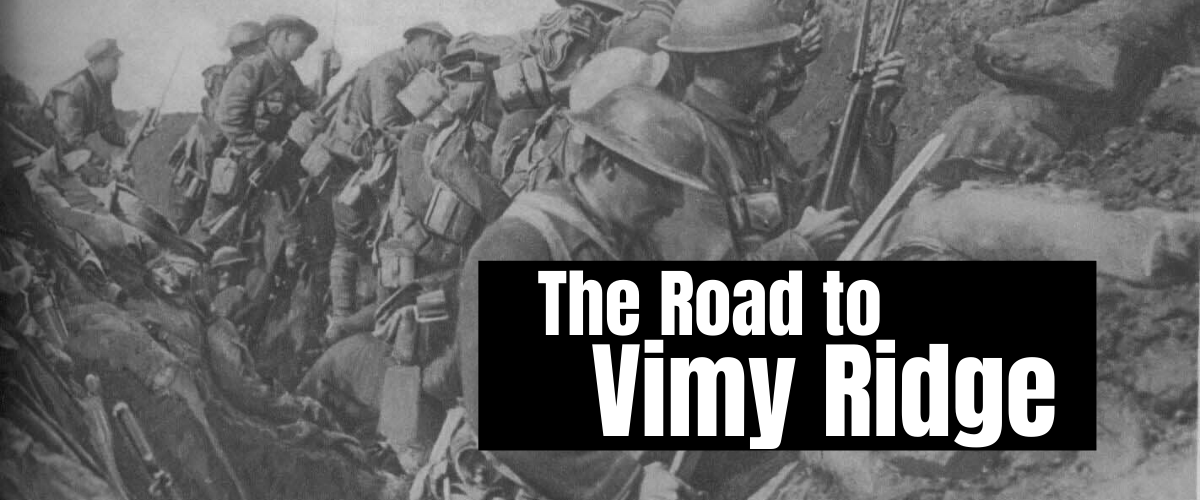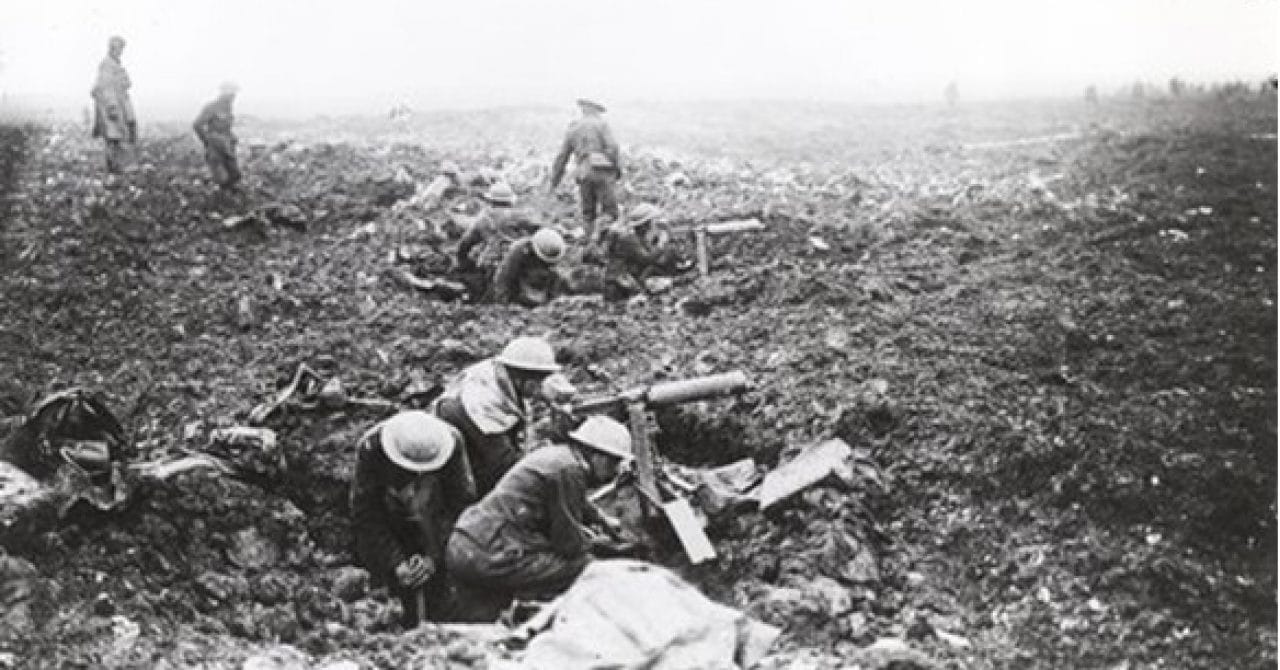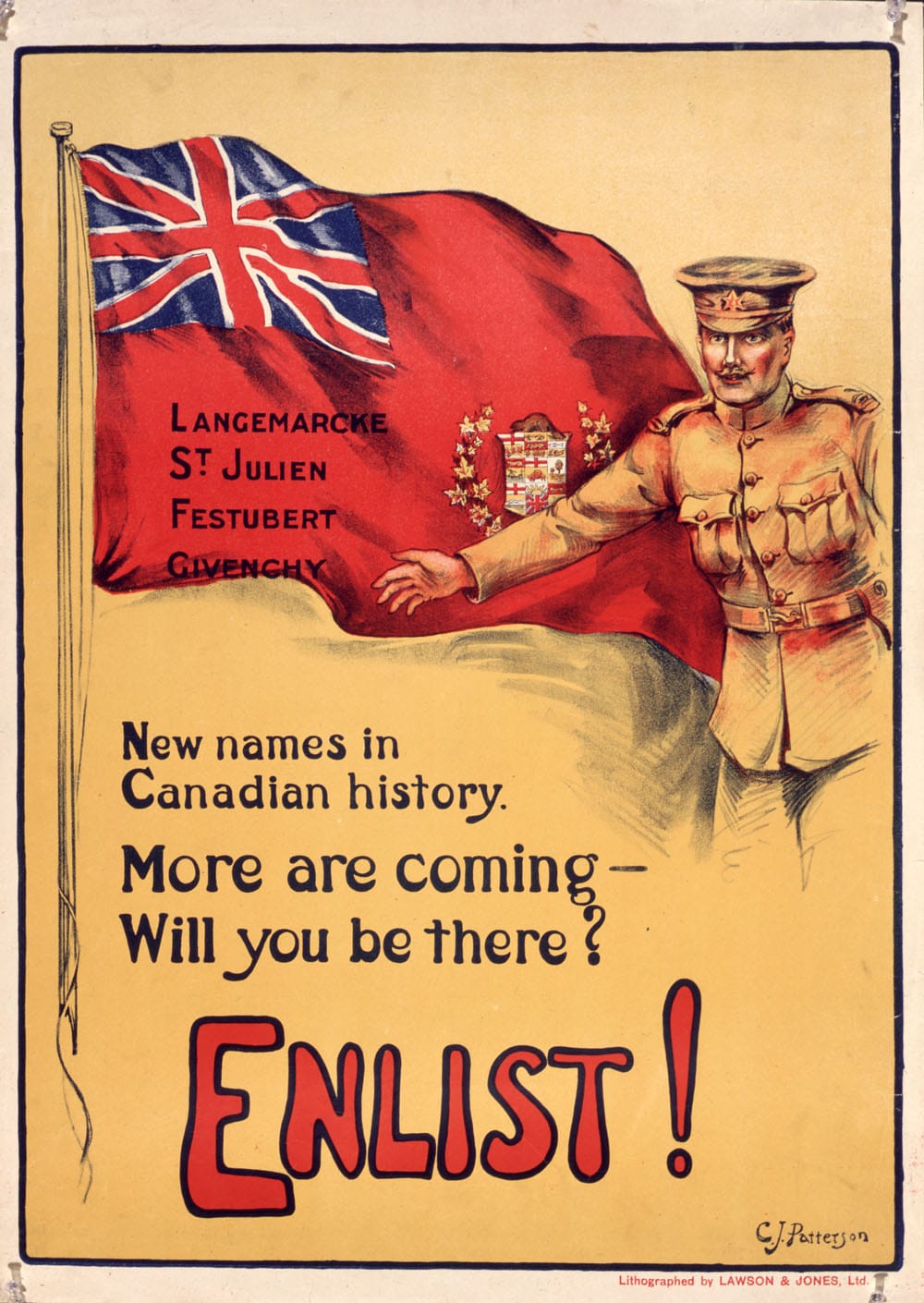road to vimy ridge
Following the words and footsteps of my great-grandfather through England, France, and Belgium during the First World War, I have begun to unlock a closed chapter of my family’s history during one of the deadliest conflicts in history…
The Road to Vimy Ridge.
This is the story of my Percy Sweatman’s experiences during the Great War. After joining a local militia in Vancouver in 1914, the path toward war was set in front of my 26-year-old great grandfather. After enlistment in March of 1915, this is the story of his journey through the war, seen firsthand from one Canadian’s perspective. He would go on to fight in Ypres, the Somme, Vimmy Ridge, and Paschendale and would see many of his friends injured and killed along the way.
It was known as the War to end all wars and is remembered as one of the bloodiest wars in the history of mankind. New technology in weaponry – including tanks, planes, and automatic weaponry – had arrived on the front lines in France in 1914, announcing its arrival with devastating a success never before witnessed. Millions of soldiers would become the first victims of war in the 20th century. The world arrived into a new era of warfare, and warfare would never be the same.
The Road to Vimy Ridge is a story that takes place during the first world war when young men from across the globe came together to fight each other in the muddy trenches of Europe. The first soldiers went willingly while during the later years of the war, they were conscripted. Each of their lives was disrupted in ways they could never have imagined. The horrors of war would follow them to the grave, whether of old age or on the battlefields. This story is meant to transport the reader from the modern age of cell phones and space travel to a time when many remembered the introduction of the telephone and can remember reading about the first flight of the Wright brothers in the newspaper.

This is a story told firsthand, from my experiences researching the war and traveling to Europe to explore what remains of the battlefields today in France. The true author of this story is Percy Emmanuel. Percy’s journal from the First World War is the backbone of this project. After traveling from Vancouver, Canada to Shornecliffe, England, and eventually towards northern France, where he would be introduced to the rigors of trench warfare.
roadtovimyridge.travel.blog
The War Journals of Percy Sweatman
After discovering my great-grandfather’s war journal in 2015, I was able to map out his journey across Europe with the help of google maps and many great historic resources. One of the key components of this project is to follow in his footsteps and visit the same places he did in his 4 years in France and Belgium. It has inspired me to search for clues about his exploits during this time, taking his first-hand accounts and pairing them with the official written history of the Canadian experience during the war. There are many incredible resources that have helped to make this project a reality.
Percy Emmanuel was born in England in 1890 and grew up in Kings Cross, just outside of London. He studied architecture at the London Polytechnic Institute. In 1909 he followed his two half-brothers Henry and Frank to Canada, eventually settling in Vancouver. A few years later, his younger brother Eric would join them in Canada. Percy took up land surveying and was articled to his brother Frank. He was commissioned as a BC Land Surveyor in 1914.
He was 24 years old when he enlisted for the Canadian Expeditionary Force alongside his brother Eric. He would take part in several important battles including Hill 70, Vimy Ridge, and Passchendaele. He would eventually be promoted to Lieutenant. In 1918 he received the Military Cross. He was decommissioned in 1919 after spending parts of 5 years serving in France and Belgium. He embarked on HMT Olympic (sister ship to the Titanic) at Southampton 6th of June 1919 on repatriation to Canada. During the First World War, he kept a journal as a form of escape from the horrors of war that were surrounding him. His war journals would go on to inspire “The Road to Vimy Ridge”.

After the war he returned to Canada, moving to Vancouver Island. He was married a few years later and he had one son – Henry (my Grandfather) – eventually settling in Maple Bay. He retired from the forestry service in 1953. He enjoyed peace in his final years. He died in 1973 and his remains are buried in Maple Bay, British Columbia.
In the 1980s, Percy’s War Journal was donated to the Canadian War Museum in Ottawa, Canada. Before it was donated, my Grandfather had a typist copy out the entirety. There were two of these copies that have been passed down through the family, along with his Military Cross, and it was this journal that inspired this project.
The Vimy Ridge Experience
Amongst Canadians, Vimy Ridge is the most iconic battle of the first world war, receiving almost folklore-like status in the collective memory of the country. This story will follow my personal journey, exploring the First World War journal of my great-grandfather, I’m hoping to unlock a missing chapter in our family history.
This project aims to produce what will be my first full-length novel, a project which I have just recently finished the first draft for. It is still in the very early stages of production as there is still a lot of research to finish and several trips around the world, including the War Museum in Ottawa, Canada, and a trip to western Europe to visit some of the key battlefields from the war. There are many towns and attractions that he described in great detail which I would love to visit for myself. This trip will take place primarily in northern France and southern Belgium.
This is an ongoing project with lots of research still to do. I am currently in the process of re-imagining the first-hand accounts of Percy (my great-grandfather) who served in the Canadian Expeditionary Force from 1915 until 1919. With the help of many different online resources, this has been an exhilarating journey. Currently in the process of writing a novel based on his great war diary.
